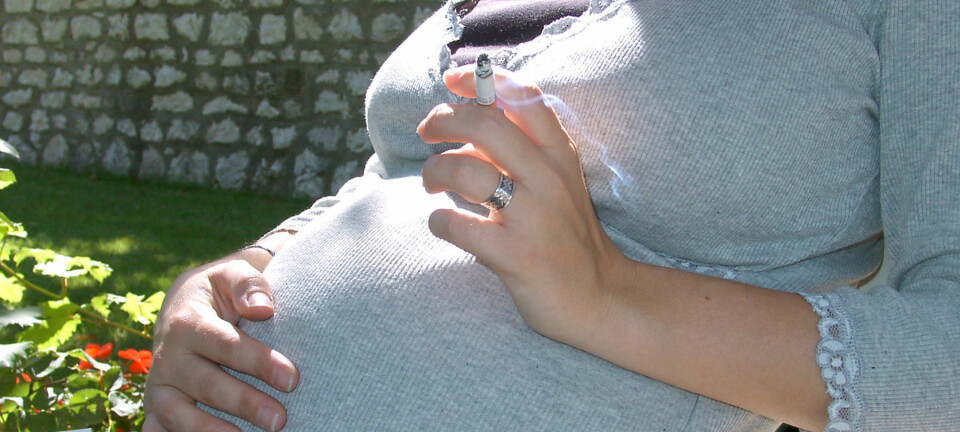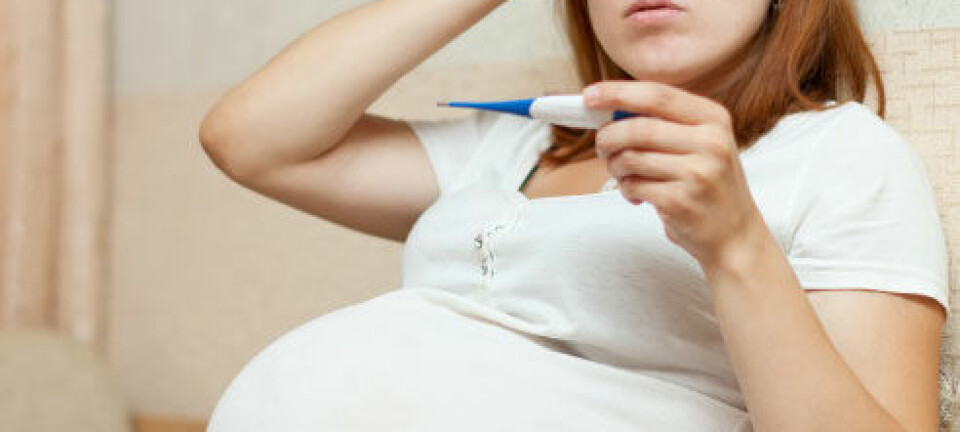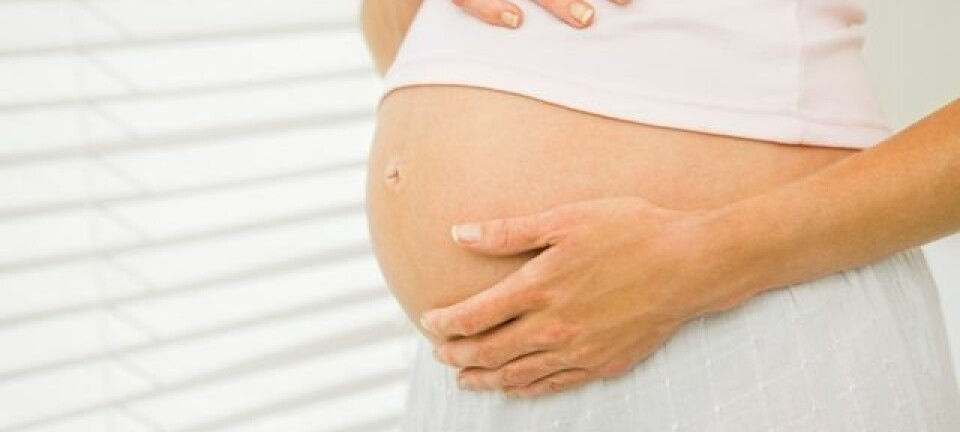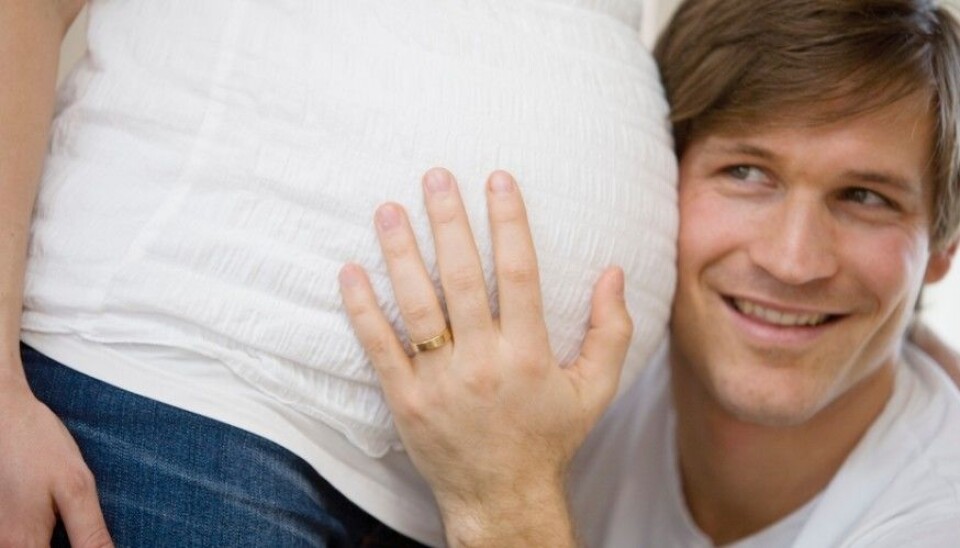
Men drink less when partner gets pregnant
The vast majority of women follow recommendations and quit drinking during pregnancy. But men are also shying away from the bottle when a child is on its way.
“This is very surprising,” says Sonja Mellingen.
Her doctoral thesis at the University of Bergen is titled “Hvordan drikker kvinner og menn som blir foreldre? [How do women and men who become parents drink?]”
Mellingen has used data from the large Mother and Child Cohort Study carried out by the Norwegian Institute of Public Health. The study of over 90,000 pregnant women recruited from 1999 to 2008 also included information from 70,000 of the infants’ fathers, collected from the 19th week of pregnancies.
This is where the researcher sees that the men started to go easy on the alcohol.
Adopting the role of father early
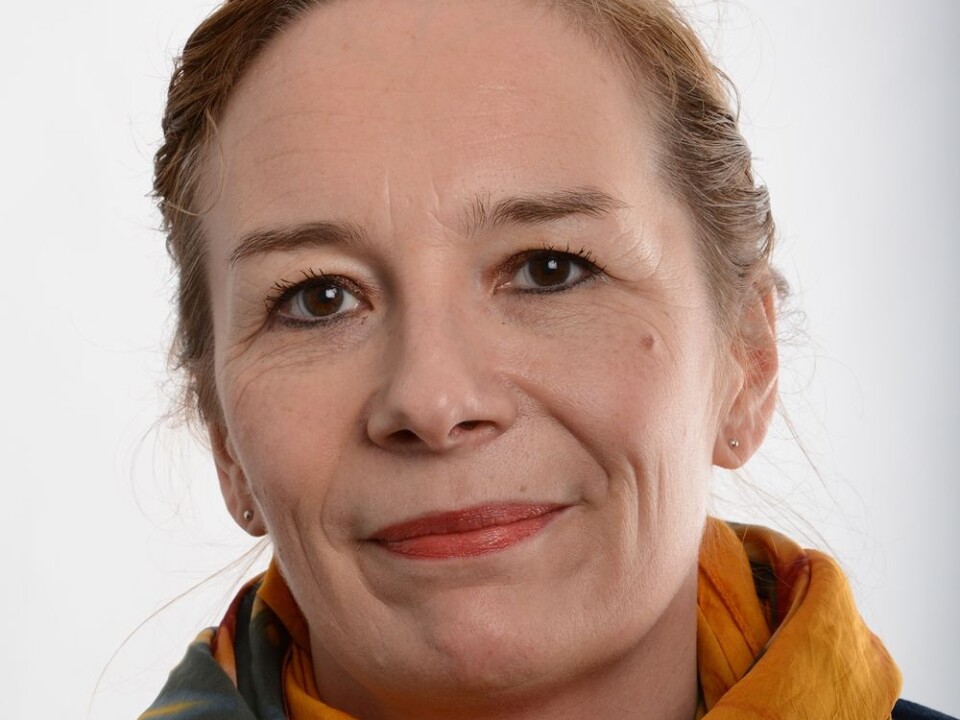
Studies from abroad have also analysed the drinking patterns of men while their partners are pregnant, but these did not involve such a large cohort as this Norwegian initiative.
“These do not show that the fathers drink less while their baby is on the way. So there are good reasons to believe this to be particular for Norway,” claims the researcher.
She thinks it can be interpreted as an indication that Norwegian men begin their roles as a father quite early, which in turn is a result of the position of gender equality in Norway.
Married drink the most
Another surprising discovery in the new study is that married women drink alcoholic beverages more frequently after the births of their infants than women with babies who are not formally married, but cohabitating with the father.
Mellingen informs us that here too, Norway stands apart. Just about everywhere else in the world where this has been studied, married women drink less than unmarried women.
“I think this is because we in Norway have adapted a Continental European drinking pattern. Perhaps the married women are most often in social situations where a lot of alcohol is served and it is commonly found at the family dinner table, for example.”
Single mothers drink less often, but consume more units of alcohol on the occasions they do drink, according to the study.
Mellingen points out that the cohort in the big Norwegian study has a higher education than the average in the population, and this can impact the results.
Tippled just as much before?
Little has been known about how women resume alcohol consumption after giving birth to a child.
The new study finds that the women who drank a lot prior to getting pregnant, in other words those who drank from five to seven days a week, are the ones who start drinking again soon after the birth. Many are back to drinking as much as they used to by the time the infant is three months old.
No studies have been made which would reveal how much men drink after their wife or partner has a child.
Less attention on the child
The body of a person who has been a teetotaller for nine months cannot tackle alcohol as readily as a person who has been drinking steadily. So the focus that a drinking mum can have on her infant is jeopardised, reasons the researcher.
In another doctoral dissertation from the University of Bergen in 2014, the researcher Siv Skotheim showed that a three-month old infant with a mother who has moderate bouts of depression could encounter difficulties in its interaction with the mother.
Mellingen thinks that this finding can be applied to mothers who are under the influence of alcohol.
Of course countless other studies have also shown that a mother’s mental health has an impact on her children.
Speak out more about alcohol
Mellingen is a clinician and has worked with clients who are addicted to drugs and alcohol. She thinks that in Norway there is insufficient focus on children and alcohol.
“The public discourse has mainly been about whether you can drink in front of your children. It hasn’t been about what happens once the children have gone to bed. If the parents are on a trip to a holiday cabin with a little child and drink a couple of bottles of wine in the evening, who takes responsibility if something happens with the child during the night?”
High alcohol consumption also leads to couples being less satisfied with their relationship. She reminds us that the risk for a break-up increases. But that risk of a separation also hinges on other issues, such as how high an alcohol consumption there was prior to the pregnancy, whether the child was planned and the duration of the parents’ relationship.
Reference:
Sonja Mellingen, Alkoholbruk, partilfredshet og samlivsstatus. Før, inn i, og etter svangerskapet – korrelater eller konsekvenser?, (Alcohol Usage, Partner Satisfaction and Cohabitation Status. Before, During and after Pregnancy ― Correlations or Consequences? [Science Nordic’s translation to English]) PhD dissertation, University of Bergen, 2016
-------------------------------------
Read the Norwegian version of this article at forskning.no
Translated by: Glenn Ostling








